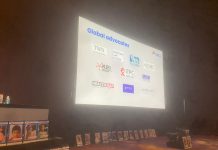
The UN High-Level Panel on Access to Medicines published its report on 14 September. The Panel was established on 19 November 2015 by UN Secretary-General Ban Ki-moon to “review and assess proposals and recommend solutions for remedying the policy incoherence between the justifiable rights of inventors, international human rights law, trade rules and public health in the context of health technologies”. The Panel’s report offers recommendations to ensure that new medicines to address unmet needs are developed and that these medicines are affordable to all. A recurrent theme of the Panel’s report is the need for stronger public leadership and less reliance on the market, in particular in the area of innovation.
One of the most significant recommendations the Panel makes is the following:
Building on current discussions at the WHO, the United Nations Secretary-General should initiate a process for governments to negotiate global agreements on the coordination, financing and development of health technologies. This includes negotiations for a binding R&D Convention that delinks the costs of research and development from end prices to promote access to good health for all. Such a Convention should focus on public health needs, including but not limited to, innovation for neglected tropical diseases and antimicrobial resistance and must complement existing mechanisms.
For the full text of the report, click here.
Solving the problems of access to high priced medicines is indeed not possible without some serious new approaches to the way we finance the development of new medicines. Today’s predominant model for development of medicines is through high prices underpinned by monopolies created through the patent system. Drug companies will tell you that without the ability to ask high medicines prices, new medicines will not be developed. However, high medicines prices lead to rationing of treatments, even of some of the most effective drugs, even in affluent countries.
Considering the amount of money the world spends on pharmaceuticals it is time for some new thinking of how to ensure development of new essential medicines takes place while assuring those medicines are affordable and accessible to all. Global spending on pharmaceutical products is expected to reach US$ 1.4 trillion by 2020 [i]. This is money the public raises, either through out of pocket payments or through its health insurance, social security schemes or tax-based government-provided health care. The public, however, has very little say over how this money is allocated when it comes to R&D priority setting and spending.
Public policy, including at the international level, should play a much greater role in steering the R&D priorities, coordinating financing and developing approaches to access to new medicines. One way for public policy to take on this role is to develop new financing models for medicines development. And delinkage should be at the core of such models.
In 2012 a study by the World Trade Organization, World Intellectual Property Organization and the World Health Organization offered a useful description of delinkage: “One important concept that evolved from this discussion is the concept of delinking price of the final product from the costs of R&D. This concept is based on the fact that patents allow developers to recoup the costs and make profits by charging a price in excess of the costs of production. This way of financing R&D is viewed as constituting a barrier to access to medicines in countries where populations pay out of their own pockets for medicines and thus cannot afford to pay high prices. The principle of delinking is based on the premise that costs and risks associated with R&D should be rewarded, and incentives for R&D provided, other than through the price of the product.”
This means for example, that instead of paying high prices governments create prize funds for the development of certain health technologies. Such funds should ensure significant amounts of financing for R&D are available and thereby create a ‘market’ for R&D but do not allow monopolies on the sales of the end products. Delinkage is not about taking money away from drug development. It is about making sure needed R&D takes place and that the results of that R&D are available to all. For example, US Senator Bernard Sanders has proposed a US$ 80 billion prize fund for the development of new but low priced treatments for cancer and HIV.
The drive to develop new antibiotic medicines has firmly put the spotlight on the need for innovation models based on delinkage and is generating broad support for such new financing models. It has also acknowledged that no country can deal with the problem of lack of new antibiotics alone. New approaches and new agreements between countries are needed to address the issue of access and innovation for antibiotics and beyond.
The idea of an international agreement on development of medicines has been debated since Hubbard and Love made an initial proposal in 2004. In 2012 WHO Consultative Expert Working Group (CEWG) recommended the start of multilateral negotiations on a medical R&D agreement. The UN High-Level Panel on Access to Medicines has now given new energy to these proposals by asking the UN Secretary General to start a process towards negotiations for a new global convention for medical innovation and access. It has outlined a series of actions for governments and the international community to take further. It is hard to see how this report can be ignored in a world where almost all countries are struggling with high prices of medicines.
This post originally appeared on the University of Groningen’s Global Health Law blog.
Ellen ‘t Hoen, LLM PhD, is a lawyer and public health advocate with over 30 years of experience working on pharmaceutical and intellectual property policies.




